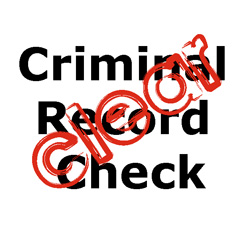With contributions by Andres Barker, Lawyer.
 In April 2014, the BC Information and Privacy Commissioner issued a report regarding the flawed process for conducting employment-related record checks in this province (see our previous blog post here). Effective January 2015, the Vancouver Police Department adopted a new Police Information Check (PIC) policy as a result of the recommendations in that report. According to the VPD, their policy “balances the public safety interests and human rights of citizens”.
In April 2014, the BC Information and Privacy Commissioner issued a report regarding the flawed process for conducting employment-related record checks in this province (see our previous blog post here). Effective January 2015, the Vancouver Police Department adopted a new Police Information Check (PIC) policy as a result of the recommendations in that report. According to the VPD, their policy “balances the public safety interests and human rights of citizens”.
Under the revised VPD PIC, record checks will no longer include:
- for the vulnerable sector, disclosure of apprehensions under s. 28 of the Mental Health Act; or
- for the non-vulnerable sector, adverse contact (i.e. incidents where an individual was a suspect in an offence) or calls related to mental health, including apprehensions under the Mental Health Act.
Despite these changes, the possibility still exists that some employers who require record checks from potential employees are collecting more personal information than is necessary, and possibly contravening privacy legislation in the process. This is because the information provided through record checks in British Columbia still includes prior convictions, outstanding charges, and, in some cases, non-conviction information such as adverse police contact and investigations that did not result in charges. Furthermore, refusing to employ an applicant because of convictions unrelated to his potential position can result in complaints under Human Rights legislation.
While the April 2014 report did not expressly prohibit employers from seeking criminal record checks from job applicants, the clear message was that such checks are fraught with legal peril for business owners. Given this, is there any way for employers to ensure that their criminal record check practices are fully legally compliant? In the context of BC’s current system, the answer is…no. For those of you who view these checks as a crucial part of your employment screening process, however, we offer the following “best practices” suggestions to minimize your risk of having to defend against a privacy or human rights complaint by a prospective employee:
1. Only request criminal records checks where there is a genuine need to do so, for reasons such as safety, security or loss prevention.
2. Limit criminal record checks to job applicants who will receive an offer of employment.
3. If you choose to deny employment to the successful applicant because of her conviction history, inform her in clear terms why her conviction is considered related to her employment.
4. Ensure you disregard information about applicants that is not relevant to the position they have applied for.
What the above makes clear is that employment law and related issues arise not just during employment and on termination, but also at the hiring stage. As such, if your employment screening process includes requesting record checks, we recommend you seek the advice of an employment lawyer – particularly where you plan to disqualify an applicant based on his conviction history.
Have questions about any aspect of your hiring practices? Contact us!
(The original version of this blog post was published in October 2014.)



